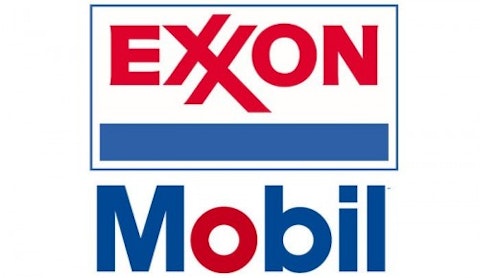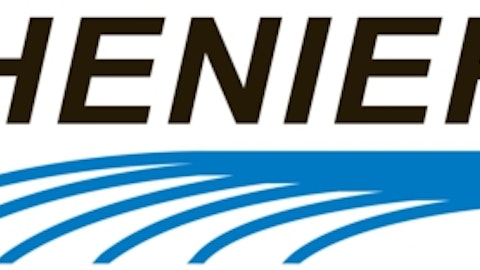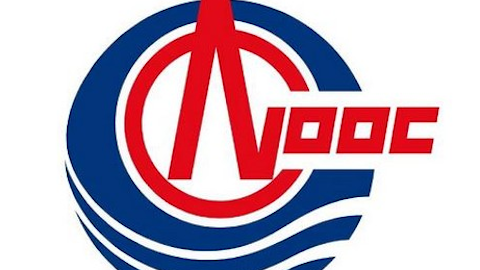Over the past five years, oil and gas giant Exxon Mobil Corporation (NYSE:XOM) has paid its shareholders $44 billion in dividends. Going back even further, Exxon Mobil Corporation (NYSE:XOM) has grown its payout to investors every single year since 1983. Rock solid dividends like that don’t come along very often, which is why investors need to hold on to a good thing.

Exxon Mobil Corporation (NYSE:XOM)’s current dividend rate of 2.9% might not turn too many heads. However, it’s the consistency with which it has been raised that has really added up over time. Take a look at the following slide:

Source: ExxonMobil Investor Presentation
Take a look at how the black line, which is CPI, slowly heads higher, but the red line, which represents Exxon’s dividend has significantly outpaced it over time. By consistently raising its payout Exxon Mobil Corporation (NYSE:XOM) was able to easily outpace inflation which would be critical if the income from Exxon’s dividend was being used to supplement retirement income.
There is a risk to investing in stocks, and that’s clearly seen in the blue line in the slide above, which shows the dip in dividends paid by the companies in the S&P 500 during the credit crisis. However, a bigger risk is inflation outpacing the fixed income from something like a bond or an annuity. While those both have a place in any retirement portfolio, the nightmare scenario for someone in retirement is inflation when living on a fixed income. A company that can consistently grow its dividend will ensure that inflation is doesn’t take an outsize bite out of the income critical for retirement.
Exxon Mobil Corporation (NYSE:XOM) of course is far from the only company that has constantly raised its investor payout. Fellow big oil peer Chevron Corporation (NYSE:CVX), for example, has grown its dividend by a compound annual rate of 11% since 2004. It even bested Exxon’s latest increase after boosting its payout by 11.1% in the second quarter, while Exxon Mobil Corporation (NYSE:XOM)’s increase was 10.5%. Meanwhile, pipeline operator Enterprise Products Partners L.P. (NYSE:EPD) has handed its investors an increased payout for 36 straight quarters.
All three companies should continue to deliver payout increases in the future. Over the past five years Exxon Mobil Corporation (NYSE:XOM) has spent $162 billion on capital projects. It has several major projects that it’s moving forward with that should start churning out cash flow over the next few years. Chevron Corporation (NYSE:CVX) has a similar growth outlook as it’s currently constructing many of the projects that will deliver its growth through 2017. Because of this the company sees the capacity for enhanced shareholder distributions in the future as these projects come online. Finally, Enterprise Products Partners L.P. (NYSE:EPD) also has a pipeline full of projects currently under construction. Overall, the company has $8 billion worth of projects it plans to put into service through 2015 including the key ATEX Express pipeline linking the Marcellus and Utica to the Gulf Coast. As these projects start to contribute earnings over the next few years, those earnings will eventually be turned over to investors through an increased payout.
As an investor there are two key traits to look for in a dividend built to last. First, it should be paid by a company with a history of growing its dividend. Further, that company needs to have a fairly visible future growth pathway to support the growth of that dividend. When those two traits are combined, it’s the recipe for peace of mind during your golden years.
The article Why You Need a Dividend Like This One originally appeared on Fool.com and is written by Matt DiLallo.
Fool contributor Matt DiLallo owns shares of Enterprise Products Partners L.P.. The Motley Fool recommends Chevron and Enterprise Products Partners L.P.
Copyright © 1995 – 2013 The Motley Fool, LLC. All rights reserved. The Motley Fool has a disclosure policy.





